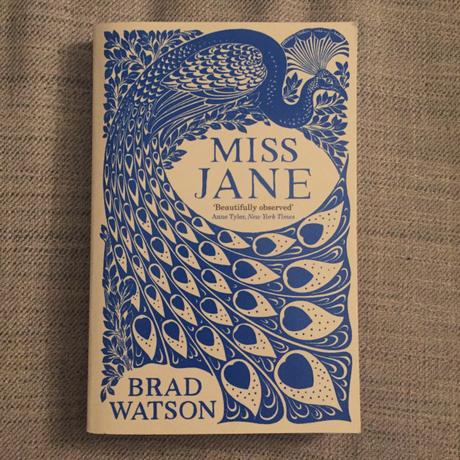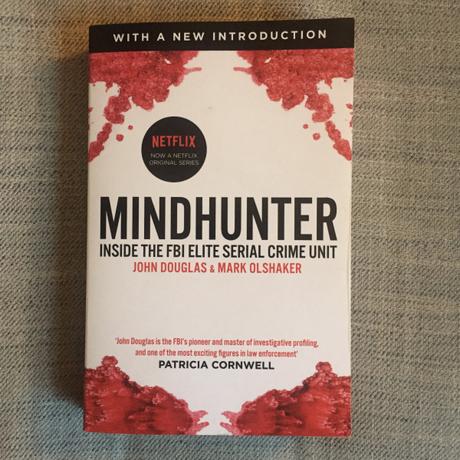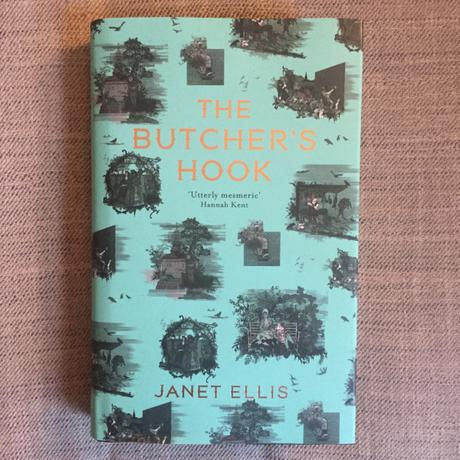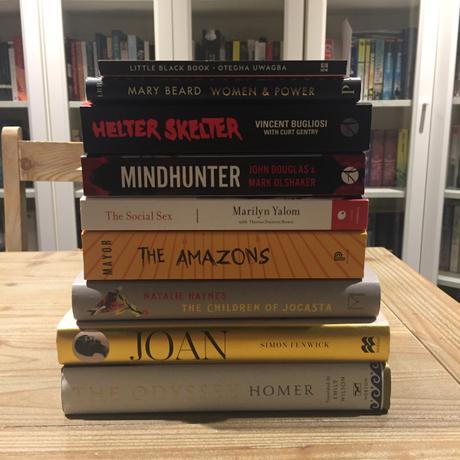As I wrote about in my last post, I had a bit of a reading slump at the end of 2017 (after a very mixed bag of reading throughout the year), and din't get to read much over the Christmas holidays as I had a cold, then the flu, then a chest infection. But now I am back in the swing of things and have just finished my second book of the year!
My last book of 2017 was a bit of an impulse purchase on a last-minute present shopping trip to Waterstones - the 2016 novel Miss Jane by Brad Watson.

It had been on my long-term TBR for while, so when I saw the paperback I went for it. I started reading it in the lovely Cafe W in the Oxford store, over a latte, and instantly liked it. Watson has an easy way of writing that draws you in straight away, and begins the novel with an account of Jane's birth, in rural Mississippi in the early 20th century.
The character is apparently based on a great aunt of the author, and this comes through in the sensitive and empathetic approach to her life story. Jane is born with some sort of genital defect that means she suffers from incontinence, and is unable to have sex or have children. Her incontinence means that her time at school is short-lived, and her inability to procreate means that she is discouraged from pursuing romantic relationships - even when she does meet a boy she likes, and who likes her. I enjoyed the depiction of Jane's simple rural life, and the ups and downs of her family - her older sister Grace feels trapped in their family and moves out as soon as she is able to; her father is good to Jane, but suffers from his own demons and does not nurture her; and her mother is detached, irritable, and intolerant. Jane lives an isolated life that is punctuated with meaningful moments, and sweetened by her friendship with the family doctor who always cared for her.
The first two thirds of the book are great, but as Jane gets older and her life doesn't really change, the novel begins to flag a bit and I felt less and less engaged as the story petered out. I think if Watson had given his heroine a little more to do than just look after the family farm, even if that's what is great aunt did, then the last third of the book would have been much more satisfying.
My next read was a Christmas present, and something completely different - Mindhunter: Inside the FBI's Elite Serial Crime Unit by John Douglas and Mark Olshaker.

I wanted to read this as I loved the Netflix series based on it (also called Mindhunter) and have always been fascinated by true crime and psychology. It is the story of John Douglas' career in the FBI and the development of psychological analysis and profiling in the FBI, something that has changed the way that we think about criminals, particularly serial killers (a phrase that was coined by Douglas' department).
I am weird and therefore find serial killers really fascinating, so it was amazing to read about the interviews that were conducted with those that had already been captured and were in prison, such as Ed Kemper and Jerry Brudos (don't google them if you're squeamish). Douglas analyses them in detail and explains his work and process with several case studies of killers caught over the years. The book gets a little formulaic as he repeats the fact that his team at the FBI learnt to look at a killer's 'work', or 'art', in order to work out what his personality was, but this was fascinating nonetheless, especially when Douglas points out that psychologists and psychiatrists work the other way around. I think you have to have a real interest in the genre to read this book, and I reckon it could have been a wee bit shorter, but I still enjoyed it.
Most recently I read The Butcher's Hook by Janet Ellis, which was a birthday present.

This was another one I'd had my eye on for a while, but hadn't actually gotten around to buying, so it was a nice surprise to receive it for my birthday. It is set in London in the 1750s and follows a particularly frantic period in the life of nineteen-year-old Anne Jaccob, as she grieves her little brother and resentfully tolerates the arrival of a new little sister. She feels completely trapped between her cold, uncaring father and her dreamy bedridden mother, as well as the two servants of the house, for whom she has very little regard.
Anne is an oddball to say the least, fixated on the flaws of everyone around her. I was pleased by her independence and wilfulness, something you might not always find in a Georgian heroine, but I can't say she was a very likeable character. As you might expect for a girl her age, she can be both intense and apathetic, and yearns to have more freedom. When her parents decide she should marry one of her father's business associates, the off-putting Mr Simeon Onions (what a name), Anne is just getting caught up in an affair with the butcher's boy, Fub (another winning name), and decides that she's had enough. She becomes increasingly reckless, running about London having ill-advised trysts with Fub, and trying to work out how to extricate herself from her family and Mr Onions.
While there is some excellent characterisation in this novel, I was unmoved by Anne's affair with Fub. I could see why he appealed to her as an attractive and unsuitable young man, but the intensity of their affair didn't quite ring true, as well as the bizarre way in which they converse - a mixture of flirting, joking, and very unsubtle sexual innuendo. Really they do not know each other at all, but Anne goes in headfirst and fixates on their supposed love, as she does with everything else. It's fair to say that she is desperate for a better life, and has deep-seated resentments against her family and her position, but she does not deal with any of it rationally. Once Fub gives her a small knife as a sort of keepsake, she begins to fixate on murder (after having seen a calf slaughtered at the butcher's) and the story goes off the deep end. Anne becomes more and more angry and vengeful, and begins to delight in the idea of killing several people she knows. Unsurprisingly she does knock off a few by the end.
I wasn't quite sure what to make of The Butcher's Hook, though I did enjoy it, and Janet Ellis is undoubtedly a good writer. It's a bit of a mixed bag of good and not-so-good characterisation, wrapped in vivid and intense descriptions of Georgian London and Anne's sensory experiences. I think it is the most interesting book I have read recently, and I'll be curious to see what Ellis publishes next.
So there you have it - my most recent reads. I now need to decide what to read next, as I amassed quite a few books over Christmas and my birthday... so many to choose from!

